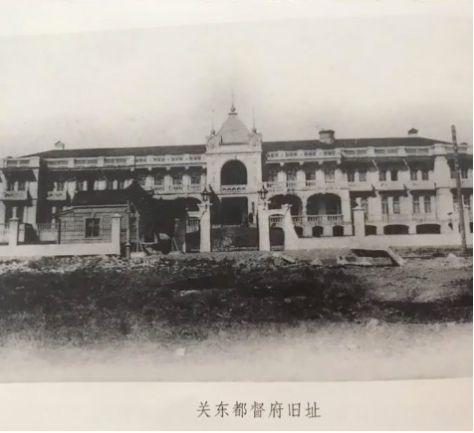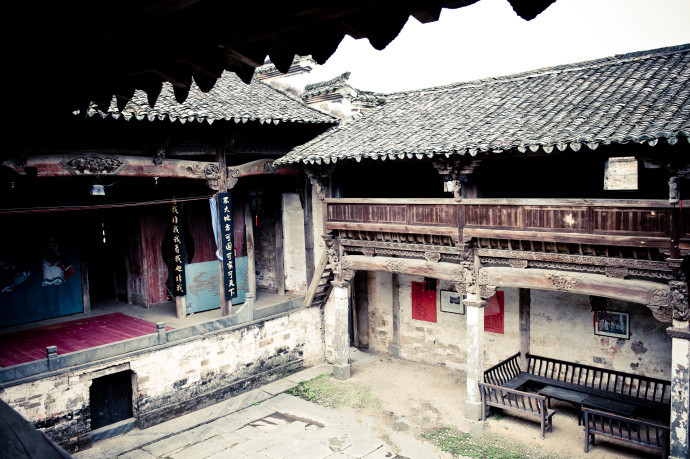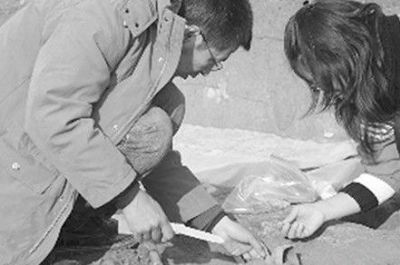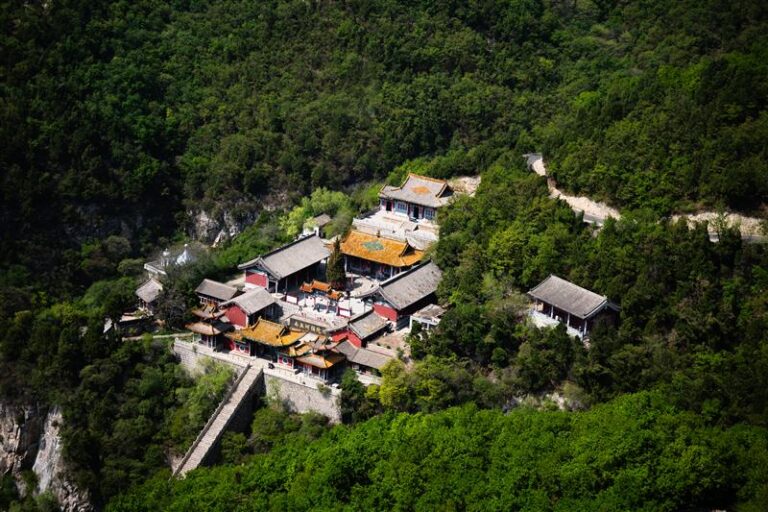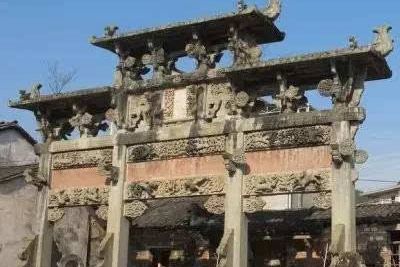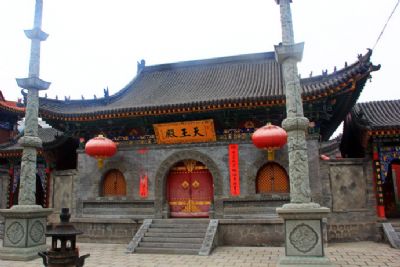Meizhou Qiufengjia Guju: Where Nature Meets Tradition in Guangdong
An Essential Guide to Visiting Meizhou Qiufengjia Guju
In This Guide
- An Essential Guide to Visiting Meizhou Qiufengjia Guju
- The Rich History of Meizhou Qiufengjia Guju
- Main Highlights: What to See at Meizhou Qiufengjia Guju
- Planning Your Visit: A Practical Guide
- Tickets, Hours, and Booking
- How to Get There
- Local Cuisine and Accommodation
- Frequently Asked Questions
- Final Thoughts on Your Trip
Nestled in the heart of Meizhou, Guangdong, the historic residence of Qiu Fengjia (丘逢甲故居) stands as a testament to the rich tapestry of Hakka culture and the enduring spirit of one of China’s revered national heroes. This ancestral home, known as Pei Yuan Tang, is not only a beautifully preserved example of traditional Hakka architecture but also a significant site that reflects the profound historical connections between Taiwan and mainland China.
Qiu Fengjia, born in Miaoli, Taiwan, emerged as a prominent figure during the late Qing Dynasty, passionately advocating for the resistance against Japanese colonial rule. His legacy resonates deeply within this ancestral abode, where remnants of his life and contributions can still be felt. Visitors to the residence are invited to explore the intricacies of Hakka architecture, characterized by its unique circular layout and harmonious integration with the surrounding landscape, as well as to engage with the stories that shaped this notable patriot’s life.
As Meizhou is often referred to as the “Capital of Hakka Culture,” a visit to Qiu Fengjia’s former home offers an enriching journey into the customs, culinary delights, and vibrant community life of the Hakka people. Whether you are a history enthusiast, a culture seeker, or simply an adventurous traveler, this destination promises to captivate your imagination and deepen your appreciation for the threads that bind Taiwan and the mainland. Prepare to step into a world where traditional values meet heroic narratives, and discover the charm of one of Guangdong’s hidden gems.
The Rich History of Meizhou Qiufengjia Guju
Nestled in the heart of Meizhou, Guangdong Province, the residence of Qiu Fengjia (丘逢甲故居) stands as a testament to the rich tapestry of history and culture that characterizes this region. Known as a prominent figure in Taiwan’s resistance against Japanese colonial rule, Qiu Fengjia was more than just a national hero; he was also an educational reformer whose legacy continues to inspire many.
Qiu Fengjia was born in 1853 in Miao Li, Taiwan, but his roots trace back to the Hakka community in Meizhou, where his ancestors migrated from the central plains of China to escape turmoil. His family’s journey reflects a broader narrative of displacement and resilience common among Hakka people, who have historically migrated to seek better living conditions. Qiu’s upbringing in this rich cultural environment instilled in him a deep sense of patriotism and a commitment to education.
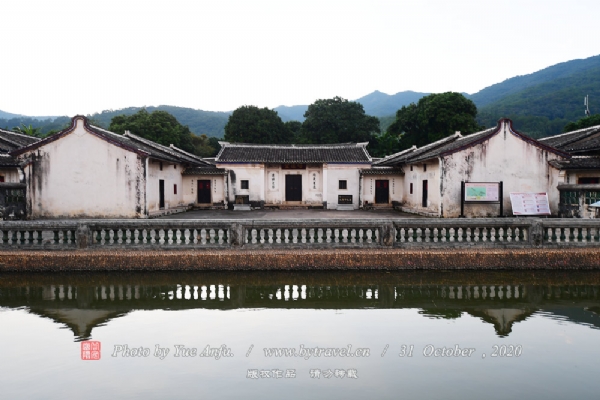
Meizhou Qiufengjia Guju.
In the late 19th century, during the Qing Dynasty, Taiwan faced significant challenges, particularly following the First Sino-Japanese War (1894-1895). The Treaty of Shimonoseki ceded Taiwan to Japan, sparking outrage among Taiwanese patriots, including Qiu Fengjia. Fueled by his love for his homeland, he organized local militias and led efforts to resist Japanese invasion, embodying the spirit of the Hakka’s tenacity and determination.
Upon his return to Meizhou after a period of activism in Taiwan, Qiu Fengjia encountered his ancestral home in disrepair. Undeterred, he dedicated himself to building a new residence, which would come to be known as Peiyuan Hall (培远堂) or the Qiu Fengjia Residence. Completed in 1896, this architectural gem is a classic example of the Hakka circular dwelling, known as a walled village house. Its design reflects the Hakka philosophy of living harmoniously with nature while providing security and community support.
Peiyuan Hall is not just a residence; it symbolizes the merging of cultural identity and historical legacy. The architectural features of the building, such as its layout and materials, are deeply rooted in the Hakka tradition. Constructed from locally sourced materials, the hall is characterized by its open spaces that encourage community interaction, reinforcing the collective spirit of the Hakka people.
Today, the Qiu Fengjia Residence serves as a museum that showcases not only Qiu’s life and contributions but also the broader Hakka culture that has shaped Meizhou. Visitors can explore the intricacies of Hakka architecture while learning about Qiu’s role in Taiwan’s history, making this site a significant cultural and educational hub.
In contemporary times, the legacy of Qiu Fengjia resonates strongly within the context of cross-strait relations, symbolizing the enduring bonds between Taiwan and the mainland. His life and work encapsulate the struggles and aspirations of the Hakka people, making the Qiu Fengjia Residence a crucial point of interest for those wishing to understand the historical and cultural significance of this vibrant region. As visitors walk through the halls of Peiyuan, they are not just stepping into a house; they are stepping into a narrative of resilience, identity, and the enduring spirit of the Hakka community.
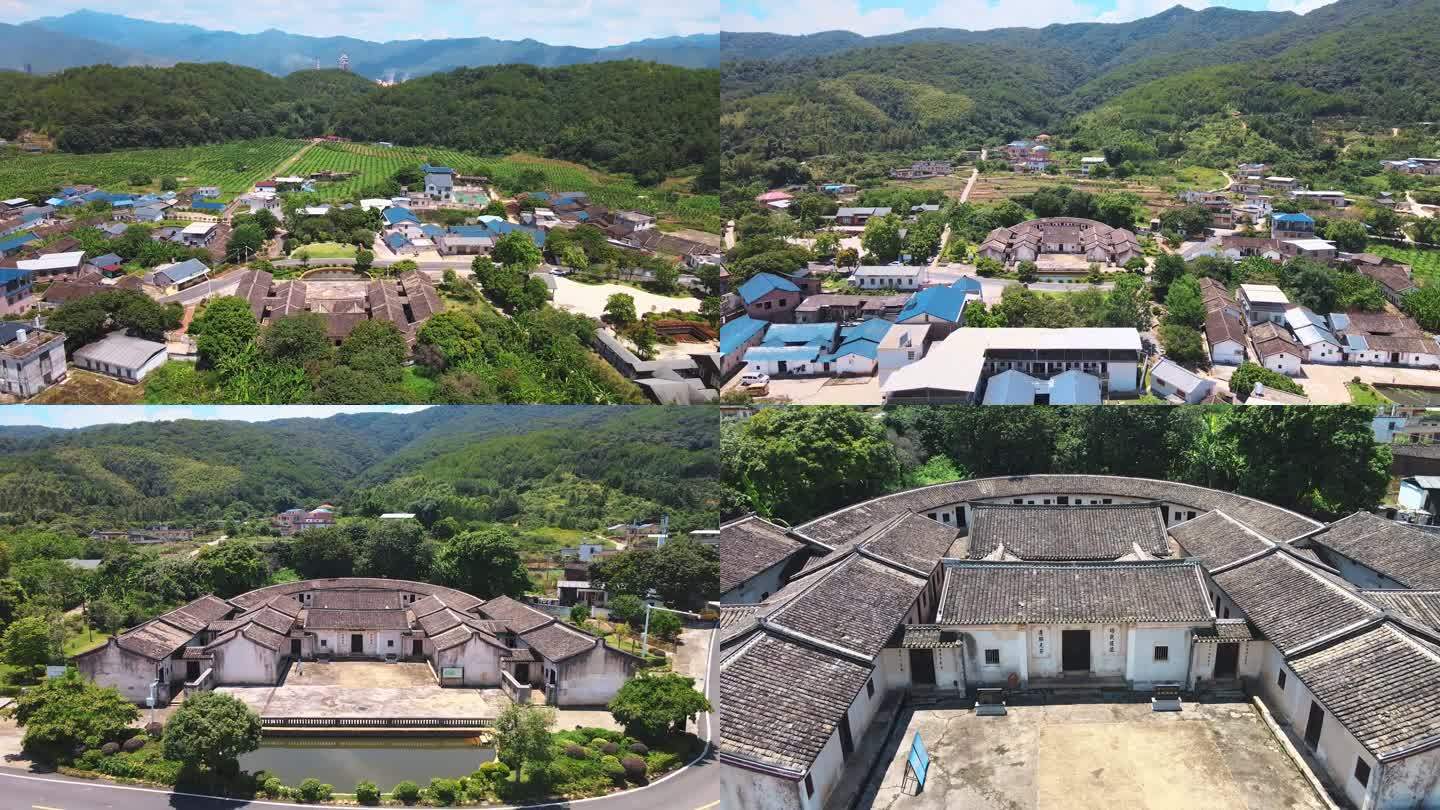
Meizhou Qiufengjia Guju.
Main Highlights: What to See at Meizhou Qiufengjia Guju
Nestled in the heart of Meizhou, Guangdong province, the historic residence of Qiu Fengjia (丘逢甲故居) is a significant cultural landmark that encapsulates the rich heritage of the Hakka people. Known as Peiyuantang (培远堂), this architectural gem exemplifies the traditional Hakka “Walled Dragon House” style, characterized by its distinctive circular layout and harmonious integration with the natural landscape.
Historical Significance
Qiu Fengjia was a revered patriot and educator born in Taiwan’s Miaoli, with ancestral roots tracing back to Meizhou. His legacy as a figure of resistance during the First Sino-Japanese War and his contributions to Hakka culture make his residence a vital site for understanding the interplay between Taiwanese and Hakka identities. Visitors can explore the beautifully restored home, built in 1896, which showcases typical features of Hakka architecture, such as a central courtyard and intricately crafted wooden beams.
Architectural Marvel
The residence spans 1,800 square meters, embodying the essence of “living in harmony with nature” that is central to Hakka philosophy. The layout is ingeniously designed to maximize ventilation and natural light, with the structure facing south to align with traditional feng shui principles. The use of local materials, including red clay and bamboo, reflects the sustainable practices of the Hakka people in their quest for resilience against the elements.
Cultural Experiences
Visitors to Qiu Fengjia’s residence can immerse themselves in Hakka culture through various activities. The site often hosts cultural performances, including traditional Hakka songs and dances, allowing guests to appreciate the vibrant customs and communal spirit of the Hakka people. Additionally, the nearby “Old Hakka Street” offers a lively atmosphere filled with local delicacies, where visitors can savor authentic Hakka cuisine, such as Mei Cai Kou Rou (梅菜扣肉) and stuffed tofu.
Surrounding Attractions
The residence is ideally located for exploring other cultural sites in Meizhou, a city renowned as the “Hakka Capital of the World.” Nearby attractions include the Hakka Museum, which provides deeper insights into the Hakka migration history and lifestyle, and the picturesque Yannanfei Tea Plantation, where you can experience tea picking and enjoy stunning views of the lush landscape.
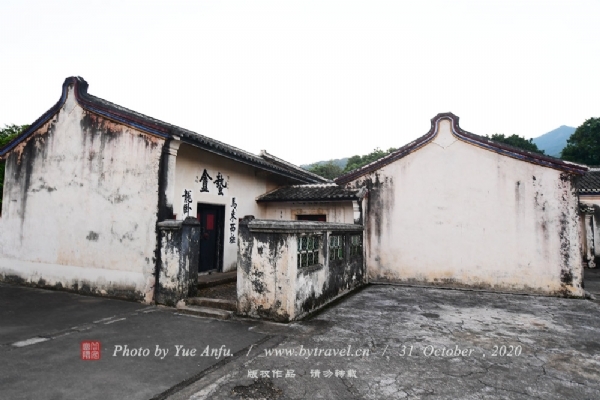
Meizhou Qiufengjia Guju.
In summary, a visit to Qiu Fengjia’s residence offers a unique blend of history, architecture, and culture, making it an essential stop for anyone exploring the rich tapestry of Meizhou’s heritage. Whether you’re drawn by the fascinating history or the serene beauty of Hakka architecture, this site promises a memorable experience that connects visitors to the past while celebrating the enduring spirit of the Hakka community.
Planning Your Visit: A Practical Guide
Practical Guide to Visiting Meizhou Qiufengjia Guju (丘逢甲故居)
Nestled in the heart of Meizhou, Guangdong Province, the former residence of Qiufeng Jia (丘逢甲故居) is a culturally rich site that offers visitors a glimpse into the life of one of China’s prominent historical figures. Here’s everything you need to know to make the most of your visit to this significant landmark.
Getting There
Location:
Qiufengjia Guju is located in the scenic Biaoling County of Meizhou. The exact address is 972 County Road South, Wufu Town, Biaoling County, Meizhou, Guangdong Province.
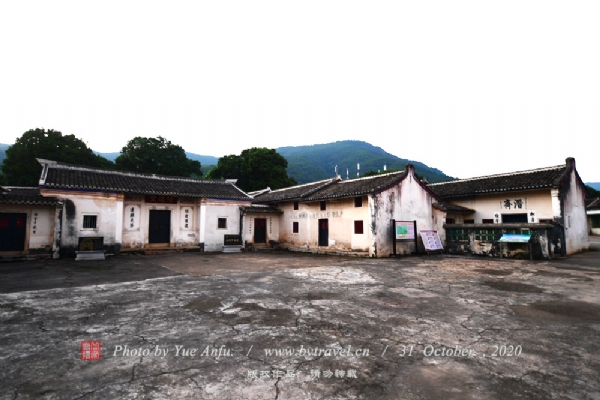
Meizhou Qiufengjia Guju.
Transportation:
– By Air: The nearest airport is Meixian Airport, which is about a 45-minute drive away.
– By Train: High-speed rail services are available to Meizhou West Station or Meizhou Station, making it easy to reach by public transport or taxi.
– By Car: Renting a car is a convenient option, especially for exploring the surrounding areas.
Opening Hours & Admission
Visiting Hours:
– Open daily from 8:30 AM to 11:30 AM and 2:30 PM to 5:30 PM.
– Closed on certain holidays, so it’s advisable to check in advance.
Admission Fee:
Entrance to Qiufengjia Guju is typically free, but it’s recommended to confirm any potential fees for guided tours or special exhibitions.
What to Expect
Historical Significance:
Qiufeng Jia was a notable anti-Japanese hero and educator born in Taiwan, with deep roots in the Hakka community of Meizhou. The residence, also known as Peiyuan Hall, showcases traditional Hakka architecture, specifically the unique “walled courtyard” style typical of the region.
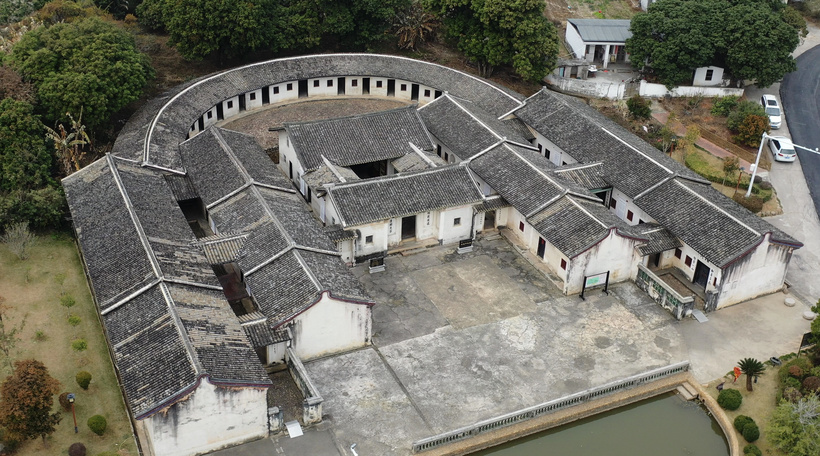
Meizhou Qiufengjia Guju.
Architectural Highlights:
– The building features a distinctive layout that reflects the Hakka culture, with an emphasis on harmony with nature and the surrounding landscape.
– Visitors can explore the intricacies of the architecture, including the use of local materials such as red clay, which provides structural integrity and durability.
Cultural Experience:
– Inside the residence, you can find exhibits detailing the life of Qiufeng Jia and the history of the Hakka people, including their migration patterns and cultural practices.
– Engage with local artisans if they are present, who may offer workshops or demonstrations on traditional crafts.
Nearby Attractions
After visiting Qiufengjia Guju, consider exploring these nearby sites:
- Hakka Museum: A great place to understand the broader context of Hakka culture and its influences.
- Yannanfei Tea Plantation: Experience the lush tea fields and participate in tea-picking activities, a refreshing way to appreciate the local landscape.
- Old Towns: Explore the nearby historical villages and old streets, where you can taste authentic Hakka cuisine and shop for local handicrafts.
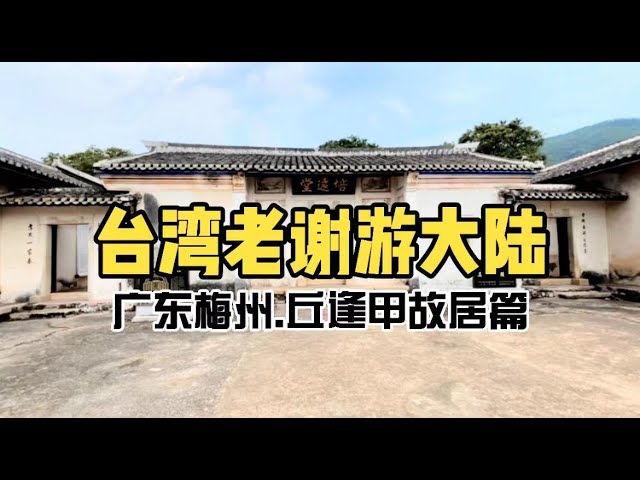
Meizhou Qiufengjia Guju.
Local Cuisine
Don’t miss out on trying some local Hakka delicacies:
– Meizhou Preserved Meat (梅菜扣肉): A must-try dish known for its rich flavors.
– Stuffed Tofu (客家釀豆腐): A delightful dish featuring tofu filled with seasoned meat.
– Hakka Pickled Noodles (梅州醃面): A local breakfast staple that is both hearty and flavorful.
Tips for Visitors
- Plan for Weather: Meizhou has a subtropical climate. It’s advisable to check the weather and dress accordingly, especially during the summer months when it can be quite humid.
- Language: While Mandarin is widely spoken, English may not be as common. Learning a few basic Mandarin phrases can enhance your experience.
- Respect Local Customs: When visiting sacred or historical sites, be mindful of local customs and practices.
With its rich history, unique architecture, and cultural significance, a visit to Qiufengjia Guju is not only educational but also an opportunity to connect with the deep-rooted traditions of the Hakka people. Enjoy your journey into the heart of Meizhou!
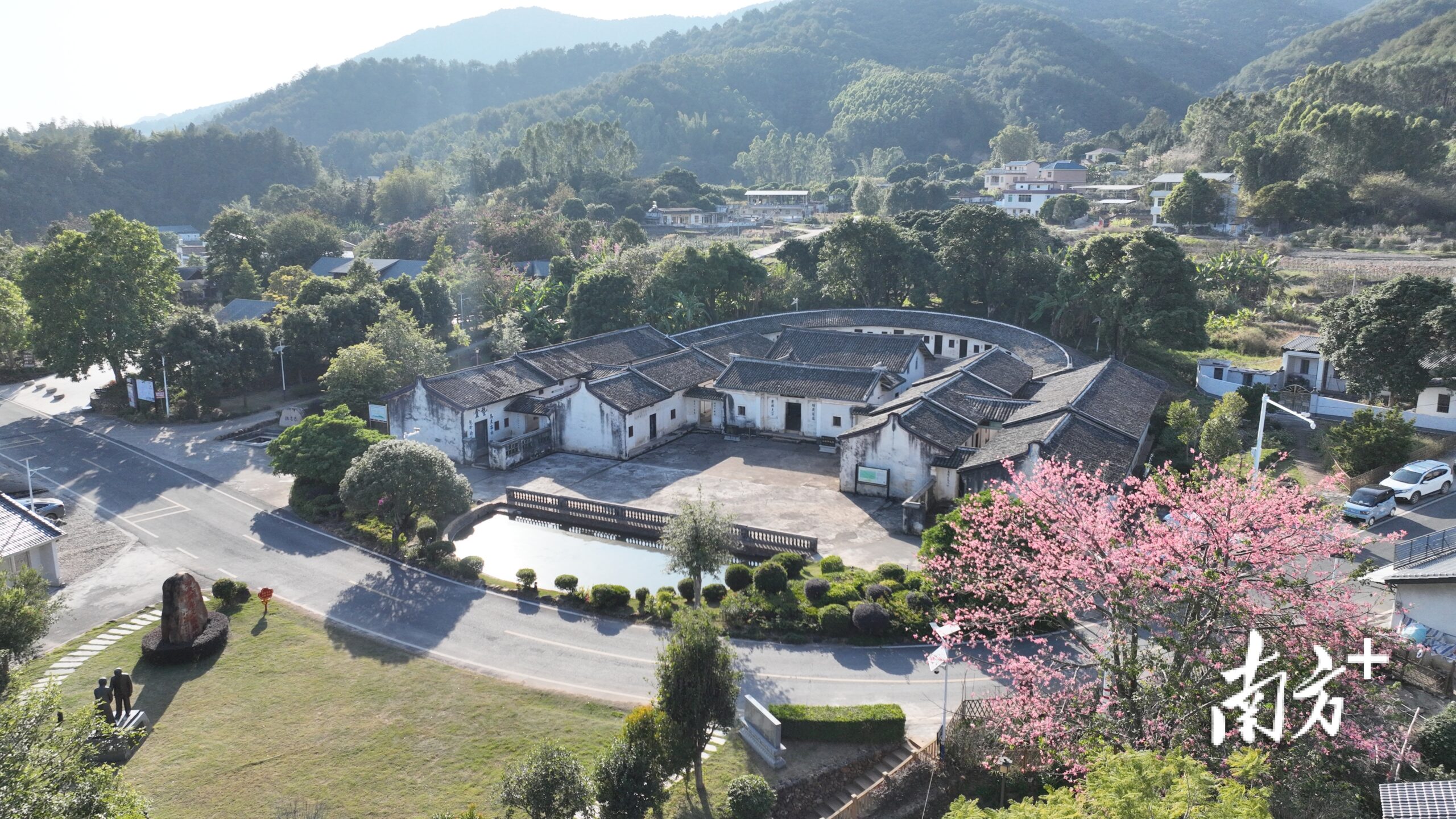
Meizhou Qiufengjia Guju.
Tickets, Hours, and Booking
Visiting the Meizhou Qiufengjia Guju (丘逢甲故居), a historical site dedicated to the revered Hakka figure Qiu Fengjia, is a rewarding experience steeped in cultural significance. Here’s what you need to know about ticketing and visiting this remarkable landmark.
Ticket Information
-
Price: Admission to Qiufengjia Guju is typically priced at 40 CNY (approximately $6 USD). This fee grants you access to the main house, known as Peiyuantang, and its surrounding grounds, which showcase traditional Hakka architecture and cultural exhibitions.
-
Opening Hours: The site operates during the following hours:
- Morning: 8:30 AM – 11:30 AM
-
Afternoon: 2:30 PM – 5:30 PM
The museum is closed on certain public holidays, so it’s advisable to check in advance or visit the official website for updates. -
Location: Qiufengjia Guju is located in Fengjia Village, Wufu Town, in the Jiaoling County of Meizhou City, Guangdong Province. The site is easily accessible by local transport and is a must-visit for those interested in Hakka culture and history.
-
Reservation: While it’s generally not required to book tickets in advance, making a reservation is recommended during peak tourist seasons or on weekends to ensure a smooth visit.
-
Guided Tours: For a more enriching experience, consider joining a guided tour. Many local operators offer packages that include transportation and a knowledgeable guide who can provide insights into the life and legacy of Qiu Fengjia, as well as the unique architecture of Hakka buildings.
When planning your visit, take note of the ticket prices and operating hours to ensure a delightful experience at this historical gem in Meizhou. Enjoy exploring the cultural heritage and the beautiful surroundings of Qiufengjia Guju!
How to Get There
Visiting Meizhou Qiufengjia Guju (丘逢甲故居) presents a unique opportunity to explore the rich Hakka culture and history of Guangdong Province. To make your journey seamless, understanding the transportation options available is essential.
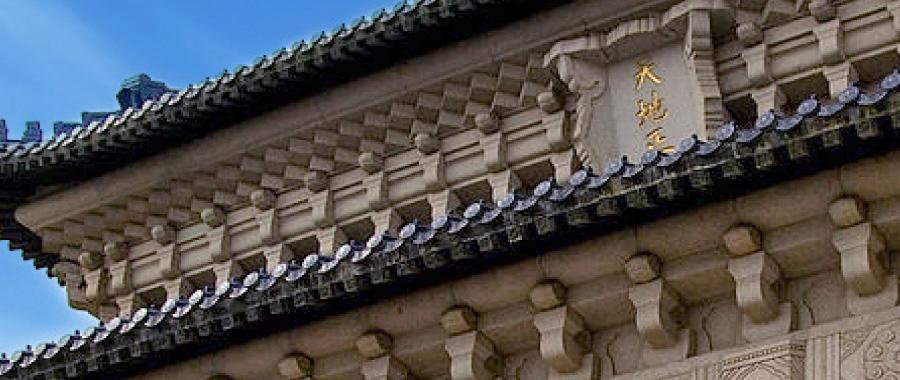
Meizhou Qiufengjia Guju.
Getting to Meizhou
By Air:
The nearest airport is Meixian Airport (MXZ), located approximately 10 kilometers from Meizhou city center. Regular flights connect Meixian to major cities such as Guangzhou and Shenzhen. Once at the airport, you can take a taxi or arrange for a hotel shuttle to reach your destination.
By Train:
Meizhou is well-connected by rail, with two main train stations: Meizhou Station and Meizhou West Station. High-speed trains from Guangzhou, Shenzhen, and other major cities offer a convenient and comfortable travel option. The journey from Guangzhou to Meizhou typically takes about 2 to 3 hours. Upon arrival at either station, local taxis and buses are available to take you to various attractions, including Qiufengjia Guju.
By Bus:
Long-distance buses operate from key cities like Guangzhou, Shenzhen, and Hong Kong. The bus station in Meizhou is centrally located, making it easy to transfer to local transportation. Buses are a cost-effective way to travel and offer a glimpse of the beautiful countryside.
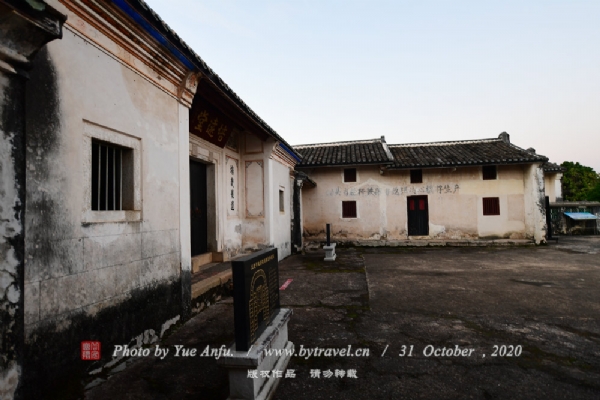
Meizhou Qiufengjia Guju.
Local Transportation in Meizhou
Taxis and Ridesharing:
Taxis are readily available and provide a convenient way to navigate Meizhou, especially for visitors unfamiliar with the area. Ridesharing services like Didi Chuxing are also operational. Ensure to have your destination written in Chinese to avoid any miscommunication.
Public Transport:
Meizhou boasts a network of public buses that cover major attractions and neighborhoods. Although the routes may not be in English, the bus fares are quite affordable. Be sure to check the local schedules and routes to plan your trips effectively.
Car Rentals:
For those wishing to explore the surrounding areas at their own pace, renting a car is a great option. Several local and international car rental companies operate in Meizhou. A valid driver’s license and an international driving permit may be required, so check in advance.
Getting to Qiufengjia Guju
Once in Meizhou, reaching Qiufengjia Guju is straightforward. The site is located in蕉岭县 (Jiaoling County), roughly 40 kilometers from the city center. You can take a taxi directly from the city, which typically takes around 40 minutes. Alternatively, local buses also run routes to Jiaoling, but it is advisable to confirm the latest schedules.
Tip: If you’re traveling with a group, consider hiring a private vehicle for a more comfortable experience. This option allows for flexibility in your itinerary and ensures that you can take in the scenic beauty of the region along the way.
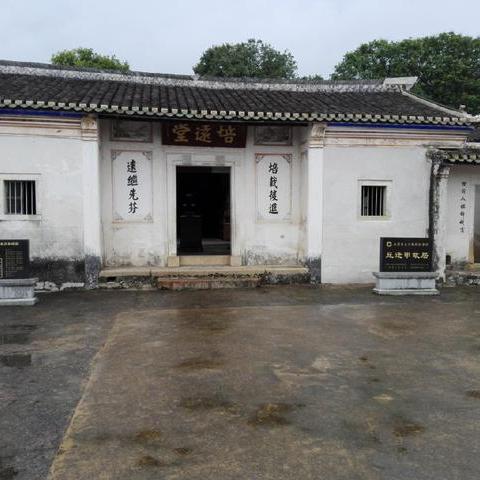
Meizhou Qiufengjia Guju.
Conclusion
Whether you choose to arrive by air, train, or bus, navigating Meizhou and reaching Qiufengjia Guju is convenient. With a variety of local transportation options, visitors can easily immerse themselves in the rich cultural heritage of this unique city. Enjoy your journey to one of the most significant Hakka cultural sites in China!
Local Cuisine and Accommodation
In the heart of Meizhou, where Hakka culture thrives, visitors can embark on a delightful culinary journey and discover comfortable accommodations that enhance their experience.
Culinary Delights
Meizhou is renowned for its authentic Hakka cuisine, which is characterized by hearty, flavorful dishes made with fresh, local ingredients. Here are some must-try delicacies:
-
Mei Cai Kou Rou (梅菜扣肉): This iconic dish features succulent braised pork belly paired with preserved mustard greens. The savory flavors and tender texture make it a favorite among locals and visitors alike.
-
Hakka Yong Tofu (客家釀豆腐): This dish consists of fresh tofu stuffed with a savory meat filling and then cooked to perfection. It’s typically served with a rich sauce that elevates its taste, making it a delightful experience for your taste buds.
-
Salt-Baked Chicken (盐焗鸡): Known for its crispy skin and juicy meat, this dish is seasoned with a blend of spices and herbs, resulting in a succulent flavor that is hard to resist.
-
Pickled Noodles (梅州醃面): A local breakfast staple, these noodles are served with a special meat sauce and often accompanied by a bowl of Sanji Di Soup, creating a satisfying start to your day.
-
Traditional Hakka Snacks: Don’t miss trying various street foods available in local markets, including steamed buns and rice cakes, which offer a taste of everyday Hakka life.
Where to Stay
Accommodations in Meizhou cater to a range of preferences, from luxurious hotels to charming guesthouses that offer a taste of local hospitality. Here are some recommendations:
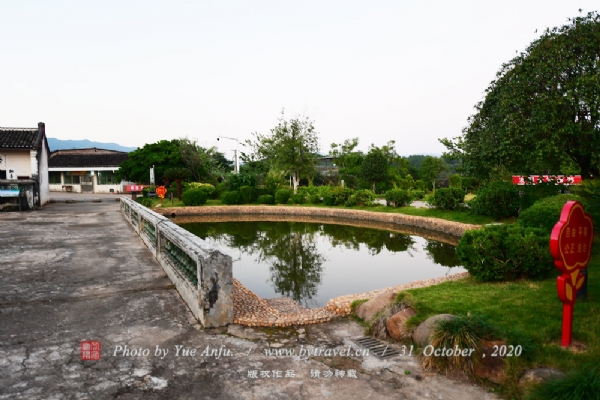
Meizhou Qiufengjia Guju.
-
Kexiang International Hotel (客乡国际大酒店): Ideally situated near popular attractions, this hotel provides modern amenities, spacious rooms, and excellent service, making it a perfect base for exploring Meizhou.
-
Yannanfei Hakka Round House Hotel (雁南飞围龙屋酒店): Nestled within the scenic tea plantations, this hotel offers a unique stay in a Hakka round house. Guests can enjoy breathtaking views of the tea fields and experience the tranquility of nature.
-
Jinbai Hotel (金百爵宾馆): A budget-friendly option that doesn’t compromise on comfort. It’s conveniently located and offers clean, well-furnished rooms, making it an ideal choice for travelers seeking a simple, pleasant stay.
-
Local Guesthouses: For a more immersive experience, consider staying at a Hakka homestay. Many local families offer rooms in their traditional homes, allowing you to experience the warmth of Hakka hospitality firsthand and enjoy home-cooked meals.
Whether you are indulging in the rich flavors of Hakka cuisine or resting in a cozy accommodation, Meizhou promises an enriching experience that honors its cultural heritage.
Frequently Asked Questions
Frequently Asked Questions about Meizhou Qiufengjia Guju (丘逢甲故居)
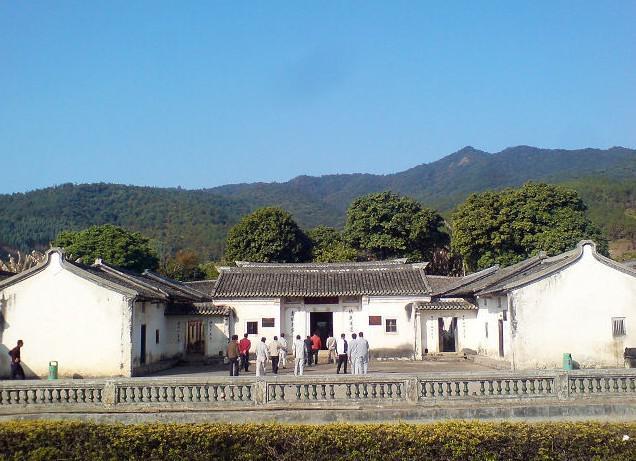
Meizhou Qiufengjia Guju.
-
What is Meizhou Qiufengjia Guju?
Meizhou Qiufengjia Guju, also known as Pei Yuan Tang, is the ancestral home of Qiu Fengjia, a notable anti-Japanese hero and educator from Taiwan. This traditional Hakka residence represents the architectural style and cultural heritage of the Hakka people and is located in the Jiaoling County of Meizhou, Guangdong Province. -
How can I get to Qiufengjia Guju?
The site is accessible from Meizhou city center, which can be reached by train or bus. Visitors can take a taxi or a local bus to Jiaoling County, where the residence is located. The nearest railway station is Meizhou West Railway Station. -
What are the opening hours for Qiufengjia Guju?
Qiufengjia Guju is open to visitors from 08:30 AM to 11:30 AM and 02:30 PM to 05:30 PM. It is advisable to check local listings for any changes in the schedule before your visit. -
Is there an admission fee to visit Qiufengjia Guju?
Yes, there is an entrance fee to visit the site. Prices may vary, so it’s best to confirm the current fee on official tourism websites or at local tourist information centers. -
What can I expect to see at Qiufengjia Guju?
Visitors can explore the beautifully preserved Hakka architecture, including the unique circular layout of the house. The site also features exhibitions about Qiu Fengjia’s life, Hakka culture, and traditional customs, providing insights into the historical significance of the residence. -
Are there any nearby attractions to visit?
Yes, several attractions are within proximity, including the Hakka Museum, various ancient Hakka roundhouses, and beautiful natural scenery in the vicinity. Exploring the local area offers a deeper understanding of Hakka culture and history. -
What is the best time of year to visit Meizhou and Qiufengjia Guju?
The best time to visit Meizhou is during the spring and autumn months when the weather is mild and pleasant. This timing allows for comfortable exploration of historical sites and local outdoor attractions. -
Are there any local dishes or food specialties to try while visiting?
Absolutely! While in Meizhou, be sure to try local Hakka dishes such as “Mei Cai Kou Rou” (braised pork with preserved mustard greens) and “Hakka stuffed tofu.” The region is also famous for its unique snacks and traditional Hakka cuisine, making it a delightful culinary experience.
Final Thoughts on Your Trip
Visiting Meizhou Qiufengjia Guju is not just a journey into the past; it’s an exploration of the rich tapestry of Hakka culture and the indomitable spirit of its people. As you walk through the halls of this historic residence, you are stepping into the life of Qiu Fengjia, a patriot whose legacy transcends borders, connecting Taiwan and mainland China through shared heritage and values.
The architecture of the residence itself, with its unique Hakka circular structure, embodies a harmonious relationship with nature and reflects centuries of wisdom in its design. This place serves as a poignant reminder of the sacrifices made for freedom and identity, inviting visitors to reflect on the importance of cultural roots.
As you leave Qiufengjia Guju, you carry with you not just memories of stunning architecture and delicious Hakka cuisine, but also a deeper appreciation for the diverse narratives that shape our world. Whether you are a history enthusiast, a culinary adventurer, or simply in search of a tranquil escape, Meizhou offers a unique experience that resonates long after your visit. Embrace the spirit of discovery and let it inspire your travels.
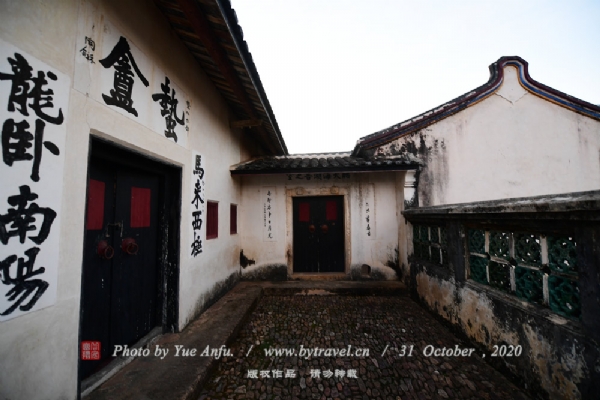
Meizhou Qiufengjia Guju.
